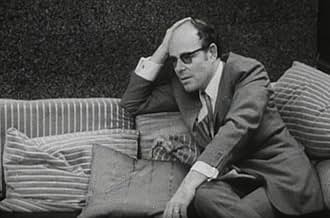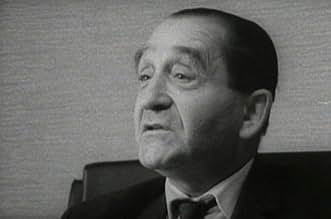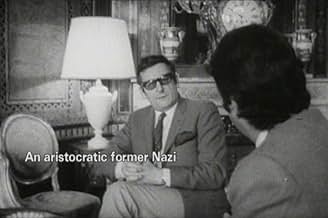Adicionar um enredo no seu idiomaAn in-depth exploration of the various reactions by the French people to the Vichy government's acceptance of the German invasion.An in-depth exploration of the various reactions by the French people to the Vichy government's acceptance of the German invasion.An in-depth exploration of the various reactions by the French people to the Vichy government's acceptance of the German invasion.
- Direção
- Roteiristas
- Artistas
- Indicado a 1 Oscar
- 6 vitórias e 2 indicações no total
- Self, former Wehrmacht Captain
- (as Helmuth Tausend)
- Self, general in the Wehrmacht
- (cenas de arquivo)
- (as General Stummel)
- Self, SS commander
- (cenas de arquivo)
- (as Zepp Dietrich)
- Self
- (cenas de arquivo)
- Self
- (cenas de arquivo)
- self, Former Mayor Of Combronde
- (as Monsieur Leiris)
- Self
- (cenas de arquivo)
- Direção
- Roteiristas
- Elenco e equipe completos
- Produção, bilheteria e muito mais no IMDbPro
Avaliações em destaque
The French filmmakers took care to interview French, both in support and opposed to the government of France who collaborated with Germany after their swift defeat, as well as Germans, both Nazi and otherwise and British officials who were involved in the war. With three languages present, the dialogue is spoken over in French, although in the English cut that I viewed, the English was mostly left alone.
It's not a stunning film as a documentary, in terms of presentation, but some of the stories that the film brings out of its sources are quite amazing and document a lot of details that a basic study of the WWII era during a history class might not bring out. Even more notably, the individual stories of those involved at the time highlight much of what's going on while also providing an emotional connection to a person or groups of people and making the situations easier to imagine. I think The Sorrow and the Pity remains a valuable film simply because there aren't many of its kind from its era and for how personal it chooses to be in telling the stories of the men and women that lived during this terrible moment in history. But it's really long and people who don't care about history or about people's stories probably would find much in here to like. 8/10.
I concur with most of the comments from the other users. Certainly Ophuls' directorial hand is evident throughout, the editing, cutting, juxtaposition, reaction shots etc are all part of the construction of his argument, although his interviewees are obviously allowed to account for themselves at some length.
What I found most surprising was the amount of humour in the film. Because of Woody Allen's use of it in "Annie Hall" I thought it would be gruelling, but there were a number of laugh out loud moments, starting with the resistance leader whose main stated reason for fighting the Germans was that they were monopolising the best meat.
Emmanuel d'Astier de la Vigerie was also a total star. His comment about the sociological make-up of the Resistance - essentially misfits and malcontents, people with nothing to lose - was very telling. A number of other interviewees made similar points - the main collaborators were the bourgeoisie - the resistance was mainly based on workers, peasants, communists, youth and weirdos of various sorts. Compare that with the sitation in the '60s when the film was made and with the situation now in the western democracies.
Anthony Eden was another major surprise. The popular image of him now is of a buffoon, the man who screwed up Suez, but in the extended interview here he displays immense charisma, intelligence and humanity. And if they make a film of his life Jeremy Irons is a shoo-in for the role.
The Nazis, meanwhile, are clearly cut from the same cloth as the neo-fascists presently enjoying something of a resurgence in most of Europe. All the same arguments made in exactly the same way by the same sort of people. This (plus the smugness of the former Wehrmacht officer still wearing his medals) was probably the most chilling thing about the film.
The final obvious resonance is with Iraq. From the German soldiers baffled and outraged by the fact that some French were trying to kill them, to the French establishment referring to the Resistance as terrorists, (yes that was the exact word they used), to the initial acceptance of the Occupation turning to hatred as reprisals against the Resistance grew, many testimonies throw a radically new light on the present situation. To draw direct parallels would be a mistake - even the Gaullists were not as reactionary as Zarqawi or Muqtada al Sadr - but nonetheless there is a lot to learn from then about now, and about the difference between how events are perceived at the time and by History.
Another user comment complains about the amount of politics in the film. It's true that some knowledge is presupposed and the film would obviously mean more to those who lived through those times. However Ophuls has said that one of his main motivations was to show that the idea that you can divorce politics from everyday life is exactly what made collaboration possible.
These are just a few of the thoughts provoked by the film, which holds many more insights and surprises and I am sure repays as many viewings as Alvy Singer gave it. It's perhaps not as shocking or affecting as "Shoah" (on which it's surely the strongest influence) but then it's a different story. It shows us the best of humanity as well as the worst and neither are always where you might expect to find them.
Incidentally, it looks like the reportedly poor quality of the DVD may be down to the original film stock rather than the transfer.
Focusing on the town of Clermont-Ferrand, Ophüls tries to understand what it was to live with German soldiers in your town, an optimistic and collaborating government, an exiled general urging you to resist and underground organizations who used terrorism as their only weapon. Ophüls does not multiply the number of interviewees. He chooses about 15 of them and interviews them long enough that you understand their comments within the context of their personality and outlook. But the most surprising is the variety among the interviewees: a very courageous farmer, a reckless British spy, a British minister, a self-sufficient German general, a doubting German soldier, a chauvinistic bourgeois, a young nobleman attracted by the Nazi theories, a young disillusioned nobleman-philosopher ready to sacrifice his life, a clear-sighted Jewish government representative, a naïve woman, a Communist, a nationalist. You'll be surprised to find out who is the most perceptive of the bunch
Boy was I wrong. This turned out to be one of the most engrossing films I've seen. Yes, it is too long. But you're willing to forgive it that. This is simply the best film I've seen on World War II. Numerous interviews with French politicians, teachers, shop keepers, peasants, hoteliers, and more along with ones of Germans and Englishmen gave one of the most revealing and human portraits of World War II - and of the French people - I've seen. Combined with included archival footage from the war, this made for what is clearly one of the great all time documentaries and greatest WWII films I've seen.
TSATP draws you in right away and really never lets up. Almost every interview enlightens in some way. Everybody talking has their own agenda - spin in modern parlance - but the director is able to combine these in a way that exposes the most blantant of falsehoods and also paints a realistic composite portrait. The Nazi propaganda films were also chilling. One early example is a film of black and arabic French soldiers captured by the Nazis with the implication that racial impurity led to the French demise.
I could go on and on about this but I think I'm running out of room and need to talk about the DVD. I highly recommend this film for anyone who wants to go beyond history book versions of the war.
As for the DVD version itself, there are several flaws, starting with the $50 price tag. Beyond that, the print used was a poor one. The quality of the interview scenes was not much better than that of the archival footage spliced in. The subtitles were also not that great. Interestingly, much of disc two appeared to have a remixed soundtrack. For interviewees in English and German, the director dubbed over a partial French translation with the original language reduced in the background. This partial French translation was then subtitled in English (and not always well). On disc two, quite a few of the English sections did not have French dubbing or subtitles, which is where I suspect the sound remix comes in. The ending was also quite abrupt and choppy (Maurice Chevalier in English?) and didn't have the feel of being original, though let me stress I've no real knowledge to substantiate this.
Você sabia?
- CuriosidadesOriginally intended for French television. However, French broadcasters refused to show it arguing the documentary depicted occupied France as exclusively populated by traitors.
- Citações
Dr. Claude Levy: France is the only government in all Europe whose government collaborated. Others signed an armistice or surrendered, but France was the only country to have collaborated and voted laws which were even more racist than the Nuremberg laws, as the French racist criteria were even more demanding than the German racist criteria. It's not something to be proud of.
- ConexõesFeatured in Noivo Neurótico, Noiva Nervosa (1977)
- Trilhas sonorasÇa Fait d'Excellents Français
Music by Georges Van Parys
Lyrics by Jean Boyer
Performed by Maurice Chevalier
Principais escolhas
- How long is The Sorrow and the Pity?Fornecido pela Alexa
Detalhes
- Data de lançamento
- Países de origem
- Central de atendimento oficial
- Idioma
- Também conhecido como
- The Sorrow and the Pity
- Locações de filme
- Clermont-Ferrand, Puy-de-Dôme, França(Main location)
- Empresas de produção
- Consulte mais créditos da empresa na IMDbPro
Bilheteria
- Faturamento bruto nos EUA e Canadá
- US$ 13.082
- Fim de semana de estreia nos EUA e Canadá
- US$ 5.224
- 26 de fev. de 2023
- Faturamento bruto mundial
- US$ 13.082
- Tempo de duração4 horas 11 minutos
- Cor
- Mixagem de som
Contribua para esta página




























